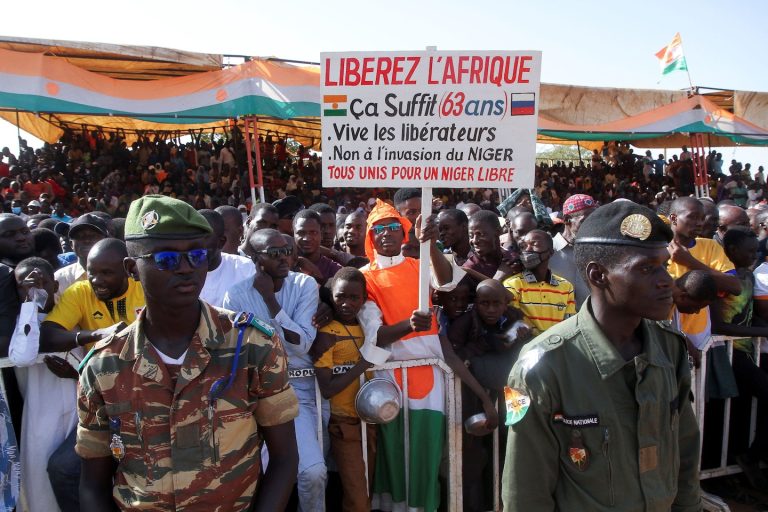Colonel Amadou Abderrahmane, spokesman for Niger's military junta, read the statement in a televised speech. He said that ECOWAS had strayed from the “ideals of its founding fathers” and failed to support the three countries, which have been devastated by Islamist insurgencies, in their “existential battle against terrorism and insecurity.”
Later Sunday, the Economic Community of West African States, founded in 1975, said it had “yet to receive any direct official notification” from the three countries regarding their intention to withdraw. The bloc said in a statement that it is working with the three countries “to restore constitutional order” and that it “remains committed to finding a negotiated solution to the political impasse.”
None of the military councils — The United States, which together formed the Mutual Defense Agreement in September, has set a clear timeline for the democratic transition. But Sunday's announcement represents an escalation in tensions that escalated last year after a military coup in Niger, the last of the three countries to lose their democratic governments.
It was the first of recent coups in Mali, where rebel soldiers seized power in 2020 and again in 2021, when a military officer ousted the original coup leader. Neighboring Burkina Faso followed a similar pattern, witnessing two military coups in 2022.
The July coup in Niger – the West’s main security partner – came as a shock to many in the region and internationally; It was met with a sharp rebuke from the Economic Community of West African States, which imposed sanctions and later threatened an invasion to restore the president-elect.
The statement on Sunday criticized the Economic Community of West African States for the sanctions, which the military junta described as “illegitimate, inhumane and irresponsible.” The statement said the trade restrictions “have weakened a population already suffering from years of violence.”
It was not immediately clear how the withdrawal would affect the Economic Community of West African States or the three countries. Members of the bloc have historically enjoyed free movement of goods and people in the region.
As military officers seized power in each country, they cited rampant insecurity as the motivation behind the coups. They blamed government leaders for failing to address the violence, which is largely led by groups linked to Al Qaeda and the Islamic State.
They also all expelled French forces from their countries. France, an unpopular former colonial power, has in recent years cooperated with governments in the Sahel region to help fight Islamist militants.
Instead, the junta has turned to Russia and Russian mercenaries to help bolster security, even as violence has increased sharply in the region. In 2023, conflict deaths from political violence in the Central Sahel rose by almost 40 percent, according to the US-based Armed Conflict Location and Event Data Project.
In a report this month, ACLED said high levels of violence would likely continue into 2024, as military commanders seek to combat “increasingly aggressive tactics” by militants.

